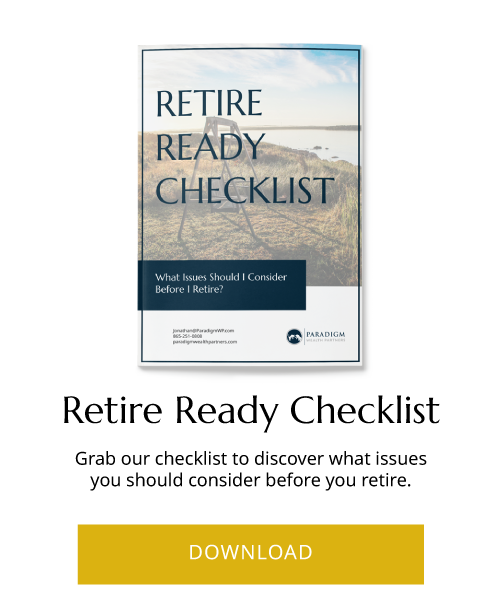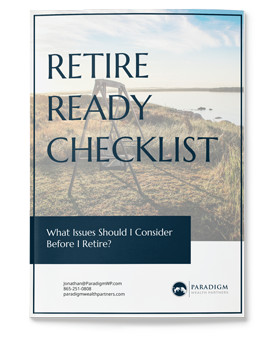It’s never too late is a bit of a cliche, but it’s almost always true. And it’s definitely true of saving for retirement at 50. Should you have started in your 20s, 30s, or 40s? Yes, but we can’t change the past. Here’s another cliche that also applies to saving for retirement at 50; The best time to start was 25 years ago, the second-best time is today.
I won’t sugarcoat things, though; you need to buckle down and get this done. You still have time but not a lot of time, and you may have to make some pretty big sacrifices. But from a financial standpoint, nothing is more important than catching up on your retirement savings. So let’s take a look at 12 tips for saving for retirement at 50.
Catching Up
I do have some good news; you’re in the prime of your earning years about now, and your kids are probably out of the nest or close. Given those circumstances, you can gain ground quickly with these steps.
Catch-Up Contributions
There are limits for contributions to tax-advantaged retirement accounts, and they sometimes increase. There are catch-up amounts for those aged 50 and older, meaning people in that age group can save the limit and an additional amount. These are the limits for 2021:
- Employer-Sponsored Plans, 401(k), 403(b), 457 Plans, Thrift Saving Plan
- Contribution Limit: $19,500
- Catch-Up Limit: $6,500
- IRA
- Contribution Limit: $6,000
- Catch-Up Limit: $1,000
- Roth IRA
- Contribution Limit: $6,000
- Catch-Up Limit: $1,000
Those additional amounts may not look like much, but this is what happens when you put them into an investment calculator:
- Starting Amount: $8,500 (Total catch-up limits)
- Yearly Contribution: $8,500
- Average Return: 7%
- Years Invested: 15
Total: An additional $237,048
Nearly an extra quarter of a million dollars for retirement is nothing to sneeze at! And it goes without saying that you should be maxing out both limits every year.
Get That Match
Contributing enough to your 401(k) to get the match is advisable for anyone of any age or circumstance. Those matching dollars amount to free money. When you’re saving for retirement at 50, those matching dollars are even more critical, and as already stated, you should be maxing out your contribution.
401(k) contributions are usually taken out of your paycheck before it hits your bank account, so they’re a form of forced savings (more on that below), and they reduce your taxable income.
Forced Savings
Well, I think all of us learned some forced savings lessons during the pandemic. There was nowhere to go to spend money! No dinners out, no drinks at the bar, no vacations, no trips to the mall. No, it wasn’t much fun, but you did it. Keep doing it. Okay, you have a little more leeway going forward but some of us saw a significant increase in our bank balances thanks to all of that forced saving so keep it up.
A Health Savings Account is another avenue of tax-advantaged forced saving. An HSA is meant to help those with high-deductible health insurance plans save taxes on money used to pay medical expenses not covered by the insurance plan.
Contributions to an HSA can be rolled over year to year, and the accounts offer three advantages; contributions aren’t taxed, the money grows tax-free, and it isn’t taxed when withdrawn to pay for eligible medical expenses.
For 2021, these are the contribution limits:
- Self-Coverage: $3,600
- Family Coverage: $7,200
- Catch-Up Limit: $1,000
The catch-up contribution is only available to those aged 55 and over.
Dollar-cost averaging is another means of forced saving and an excellent way to eliminate the biggest threat to your investments; you. DCA means contributing the same amount of money to your investments regularly. It doesn’t require any thought or emotion, and it doesn’t matter what the market or the economy are doing or what the headlines and pundits are screaming.
Stay Invested
Jumping in and out of the market is totally the opposite of any successful investment strategy and especially harmful when you’re saving for retirement at 50.
Don’t Time the Market
Timing the market means trying to predict when market fluctuations will happen and buying or selling investments based on those predictions. Yeah, it works about as often and well as you’d think it does, i.e., it doesn’t work. So don’t do it. DCA is the cure for this.
Emotional Investing
I’m going to keep writing it because it’s so true and so important to understand; you are your own worst enemy when it comes to investing. Making decisions based on fear, greed, elation, or panic will not serve you. And again, the solution is DCA!
Into Every Life, Some Risk Must Fall
Conventional wisdom tells us that the closer you get to retirement, the more conservative your asset allocation should become. But when you’re behind and saving for retirement at 50, you can’t afford to be as conservative as that conventional wisdom dictates. But you also can’t afford to be too aggressive.
What’s the balance? There is no one size fits all answer. A few factors can allow you to be more aggressive to gain some lost ground:
- Your health. Can you continue working past the traditional retirement age, and is your health robust enough that you don’t expect anything that will result in expensive medical intervention?
- Job security. Is there a low risk of losing your current job or not being able to find a similar paying one if you did?
- Is your spouse considerably younger (at least ten years) and working?
- Do you have a substantial amount of high-interest debt like credit card debt?
- How close are you to having your mortgage paid in full?
Find Money
At some point, you’ve made all of the spending cuts you can (or are willing to), and you need to find additional money for saving for retirement at 50.
Your Career
Do you know what your peers are making? By peers, I mean those in a similar job, at a similarly sized company, with an equivalent amount of experience and seniority, in a similar area of the country.
If the answer is “No,” then you need to find out so you can know if you’re being paid what your position is worth. You can find that information on sites like:
Your Job
Armed with the information you gleaned from the above sites, you can lobby for a raise if your salary is not on par with your peers. If your current employer doesn’t agree to the salary you want, it may be time to dust off your resume and hit LinkedIn to start networking.
The average raise at a current job is about 3% while changing jobs can get you an average increase between 10% and 20%. That is huge, a 3% raise isn’t going to do much to boost your retirement savings, but 10% or 20% certainly will.
Found Money
Any extra money that comes your way; raises, bonuses, gifted money, inherited money, tax, refunds, gambling winnings, all of it should be saved for retirement.
Your Kids
I know this one will be hard to swallow; I’m a parent too, and like you, I want the best for my children. But if you’re saving for retirement at 50, you cannot afford to continue to save for or fund your children’s education.
If you have younger children, that includes paying the cost to have them in a private school, and for older kids, it means stopping 529 Plan contributions or funding their education or expenses from your pocket.
If you have adult children who you have been funding in some capacity, that has to stop too. I understand some circumstances where parents have no choice but to help children financially, but if that isn’t the case for you, the bank of mom and dad has to close.
Delay Social Security
Of all of these suggestions for saving for retirement at 50, this may be the most impactful. Consider delaying taking Social Security the closer you get to retirement because for each year you do so before reaching 70; you’ll increase your future payments. The earliest you can take Social Security is 62.
Bonus
This is a bonus tip because it didn’t fit anywhere else and because it’s also a big one. Buy long-term care insurance in the next few years. LTC insurance pays for things Medicare doesn’t, including in-home care and nursing home costs. And we are all well aware of how expensive medical care in the U.S. is. If you aren’t, here are some eye-opening numbers from Genworth. These are median monthly costs for 2020:
- Home Health Aide: $4,576
- Assisted Living Facility: $4,300
- Nursing Home Private Room: $8,821
If you need more convincing, go to Genworth’s site. They have great tools that will let you see estimated future costs up to 2070 and specific costs for your area.
The cost of long-term care can wipe out even robust retirement savings, so if you’re behind, this is nothing to play around with. Buy LTC insurance soon, ideally around age 55 for most people.
One More Cliche
I know, indulge me! It is not too late to start saving for retirement at 50, but time is of the essence. If you want to create the life you love, start now.
important information
LPL Tracking #1-05125879



